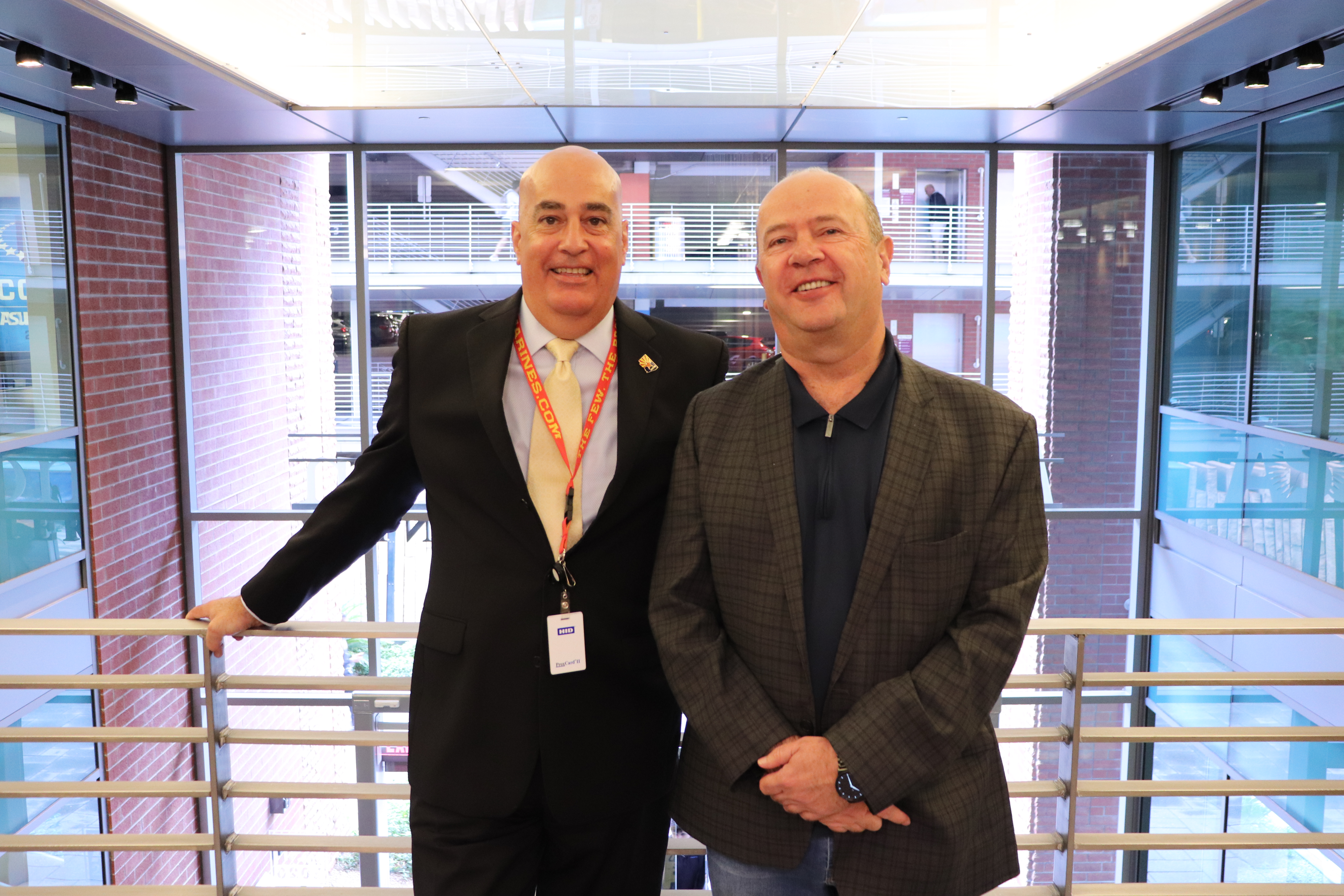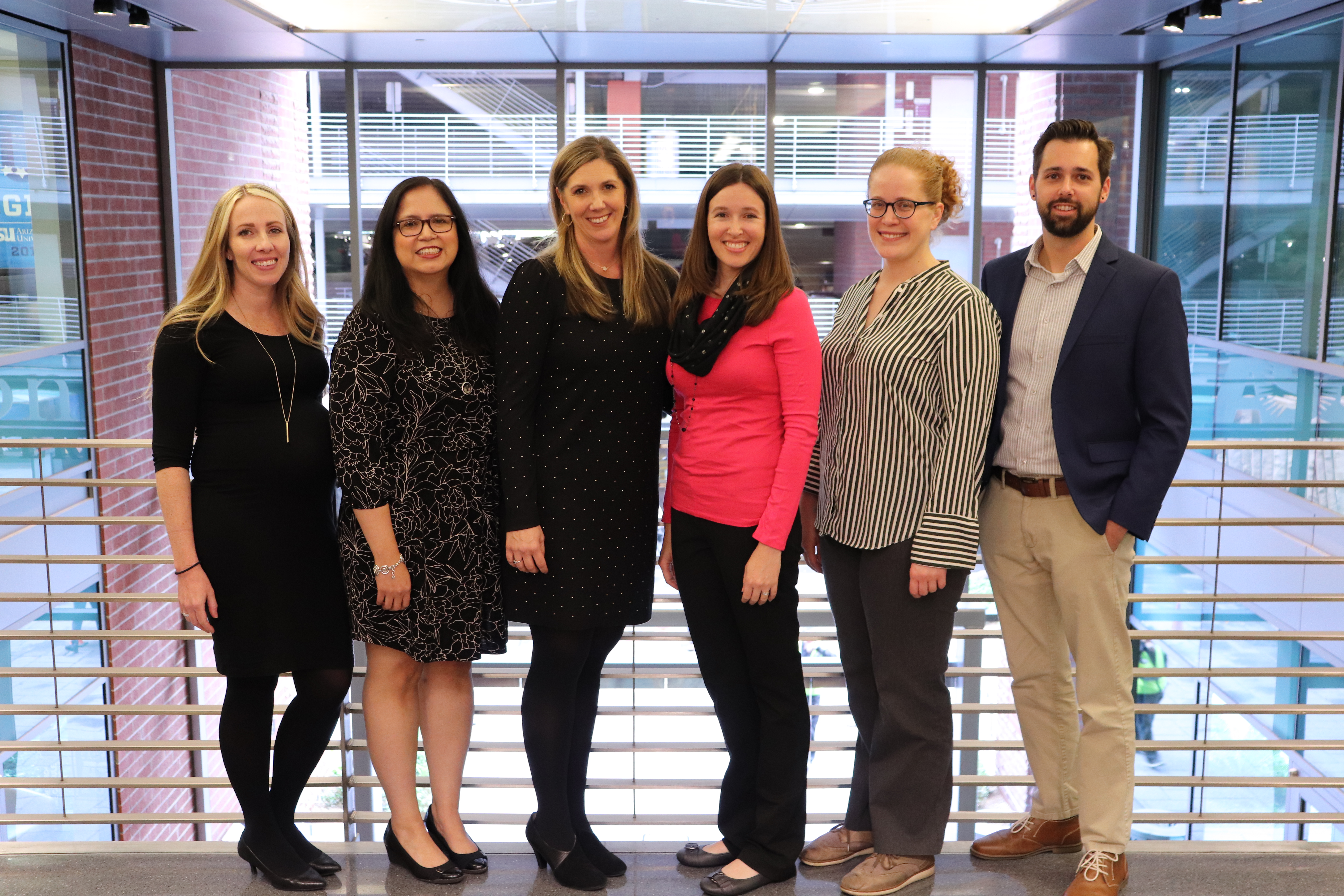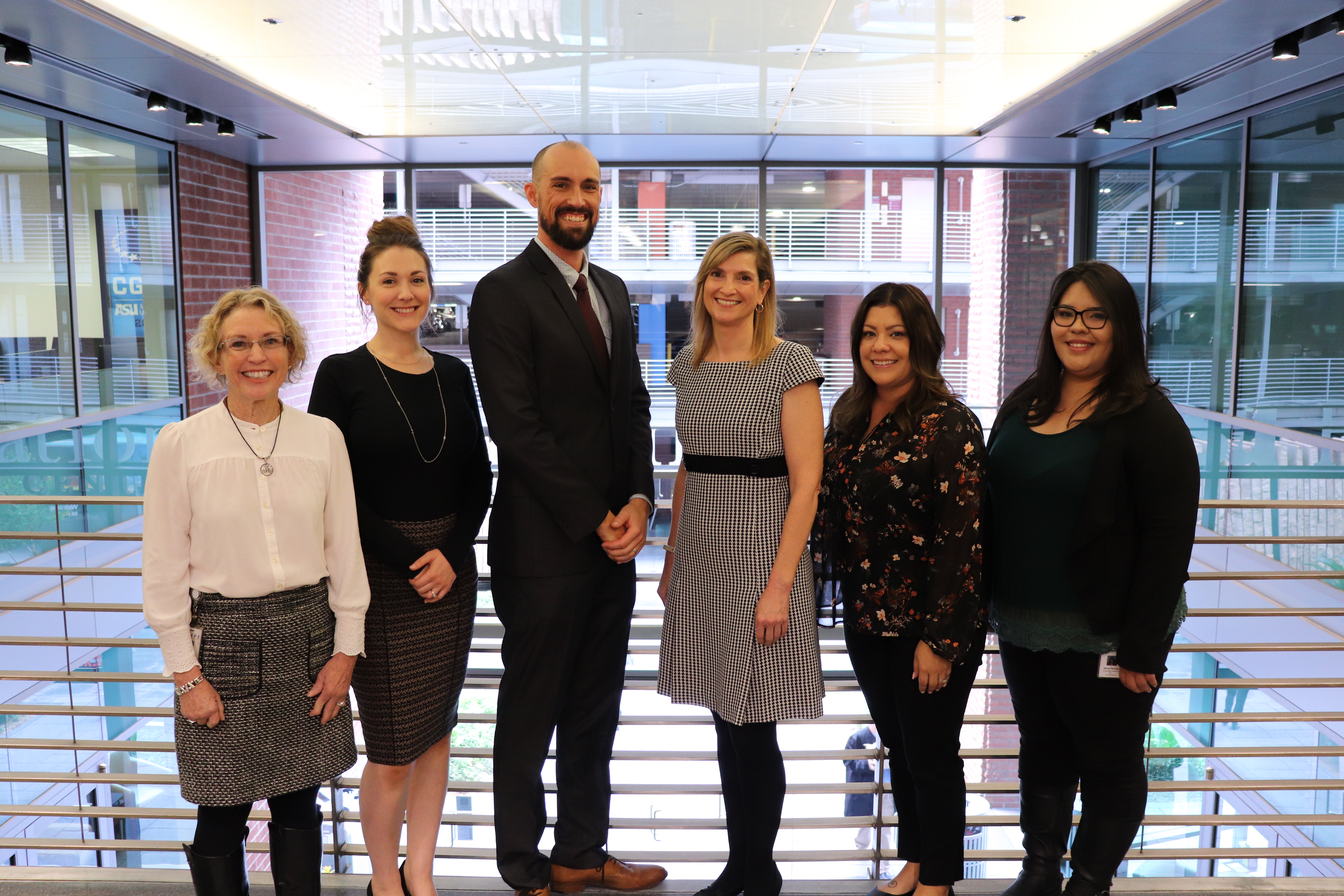3 teams advance to semifinals in Alliance for the American Dream competition

Schmidt Futures is investing up to $1 million in a team that can help increase middle class net income.
Three teams recently won the local Alliance for the American Dream competition at Arizona State University. The teams, Enfuego, me3 and Care4Me, received seed funding and will advance to the national semifinal event in March 2020, where they will compete for a slot in the finals and be eligible for up to $1 million of funding from Schmidt Futures, a philanthropic initiative, founded by Eric and Wendy Schmidt, that finds exceptional people and helps them do more for others together.
ASU’s top teams each pitched different technological solutions to respond to the Alliance for the American Dream’s ambitious challenge to devise innovative solutions that increase by 10% the net incomes of 10,000 middle class households by 2022, either by increasing earnings, decreasing expenses or a combination of both strategies.
“A vibrant, thriving middle class depends on the ability of the labor force to find meaningful work,” said Andrew Nelson, the program manager who leads this effort. “Each of these proposals are promising, novel solutions that strengthen the economic security of local middle class families by improving their employability and reducing the barriers to employment.”
Over the coming months, teams will work closely with ASU and local entrepreneurship coaches to further develop and enhance their proposals. The selected finalists will pitch their solutions to a screening panel convened by Schmidt Futures alongside the top three teams from each of the other Alliance members, including The Ohio State University, University of Utah, and University of Wisconsin-Madison. Up to five teams will then be invited to the finals, where they will compete for up to $1 million of implementation funding from Eric Schmidt.
Teams were selected by a community review board comprised of prominent local leaders from various sectors, including Ed Borromeo of Tallwave, Monica Villalobos of the Hispanic Chamber of Commerce, Carl Zaragoza of Leadership for Educational Equity, Neil Giuliano of Greater Phoenix Leadership and Christy Moore of Social Spin Laundromat.
Finalists were chosen from among eight innovative proposals working on solutions ranging from upskilling lifelong learners to food business incubation. Teams were evaluated on a number of criteria, including the likelihood of achieving the goal, benefit to diverse communities, depth of research and being partner focused, among others.
This is the second cycle of the Alliance for the American Dream competition. In the inaugural cycle, an ASU-led team, Project Benjamin, shared first place and received a $1 million investment from Schmidt Futures to create and integrate an AI-powered chatbot into existing efforts to increase FAFSA completion rates for high school seniors in Arizona.
Meet the semifinalists
Paul Hughes of Enfuego (left) and Dragan Boscovic of ASU. Photo by Alexander Davis
Enfuego: Enfuego helps job seekers, especially those currently un/underemployed, to better communicate their skills and find employment by optimizing their resume for each job to which they apply. The technology, developed at Arizona State University, gives users critical insights before they even apply to a job by comparing the skills required against the users’ experience. Enfuego also connects users to educational opportunities to gain the missing skills.
From the team: “Even in a good economy more than 77% of people are looking for work,” said Paul Hughes, founder of Enfuego Technologies. “We’ve built a new platform that advocates on behalf of the job seeker and puts an end to the question, ‘What should I put on my resume?’ We’ve automated the hours-long task of rewriting your resume and are helping people in transition such as active duty military who are on their way back to the civilian workforce or people with English as their second language, who’ve got the skills and capability, but don’t know how to market themselves.”
From left: Lisa Flesher, Sylvia Symonds, Jennifer Malerich, Bethany Weigele, Katherine Ricker, Alex Brown, all with Arizona State University. Photo by Alexander Davis
me3: This enhancement of me3 provides lifelong learners a low-stress way to identify pathways to career advancement by matching users with short-term, valuable educational opportunities and credentials. It also helps its users looking to re- or upskill identify economically viable ways to cover associated expenses.
From the team: “We want to expand me3 to meet the needs of the lifelong learner looking to identify the necessary skills, related short-term educational opportunities, and employer tuition reimbursement benefits that will help them either maintain their current position, or get a new position to better provide for themselves and their families, in this rapidly changing global marketplace,” said Jennifer Malerich, executive director for academic and global engagement at ASU.
(From left): Cyndy Lawshe, Kristi Griffin, Shaun Yunt, Marie Raymond, Cynthia Garcia, Melissa Placencia, all with the city of Tempe. Photo by Alexander Davis
Care4Me: Care4Me helps families find quality, affordable child care that meets their needs. By assisting parents as they navigate this complex system, Care4Me enables users to return to work, increase their work hours, seek promotions, and/or pursue additional educational opportunities, all things that enhance their earnings or earning potential.
From the team: “Care4Me is for all families who struggle finding quality, affordable child care and it especially helps those who may have delayed entering the workforce or who rely on a patchwork of unreliable care because they simply cannot afford the options that are out there for them or they don’t know how to access financial assistance,” said Marie Raymond, family and community support manager at the city of Tempe.
Learn about all eight teams here.
Please direct all inquiries about ASU’s participation in the Alliance for the American Dream to Andrew Nelson, program manager – strategic network advancement: 480-727-3491 or nelson.andrew@asu.edu


